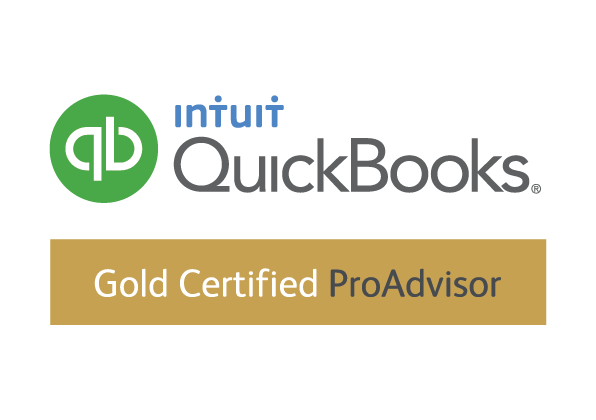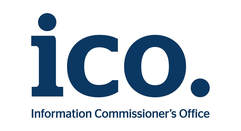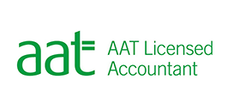|
Subcontractors usually end up paying more tax than they need to as they are taxed at 20% on their total earnings before expenses are taken into account.
Intact Accounting helps many subcontractors claim all the expenses they are entitled to and get the excess tax paid repaid from HMRC as quickly as possible; specially during these uncertain times, we can help get the tax rebate that's due to you. Please contact us on info@intact-accounting.co.uk to see how we can help you.
0 Comments
With the recent surge (and fall) in the value of crypto currencies, it is important to bear in mind HMRC view these currencies as assets and individual investors may have to pay capital gains tax on any gains made from their activates. At certain levels Income tax and Class 4 National Insurance may be payable instead.
To begin with the price paid for these currencies and any other expenses incurred to acquire them must be recorded accurately to calculate future gains correctly. Tax on gains over the annual tax-free allowance of £11,300 (for individuals) for tax year 2017/18 is charged at 10% or 20% depending on the individual’s circumstances. Gains must be reported via the self-assessment system on tax returns by 31 January following the end of the tax year in which the disposal occurs to avoid any penalties from HMRC. If up to four times the rate of the annual tax-free allowance of £11,300 of i.e. £45,200 of crypto assets are sold even if the net gains are not more than the annual tax-free allowance, then the sale must be reported to HMRC. Married individuals could gift some of their assets to their spouses prior to disposal to utilize their tax-free allowance resulting in a combined tax-free gain of £22,600 per tax year. If the frequency of and time spent buying and selling crypto currencies is sufficient then HMRC may consider it a trade and then rather than the profits being chargeable to capital gains tax they will be chargeable to income tax at 20%, 40% or 45% and National Insurance at 9% and 2%. This would result in a higher tax charge and so care must be taken to get your disclosure to HMRC correct. For further information please contact us on info@intact-accounting.co.uk. If you buy a property to make improvements and sell for a profit then you’re a trader, however if you buy a property and rent it out and wait till the value increases over the years then you’re an investor.
It’s important to distinguish between the two, as if you are a trader your gains on the improvements to the property well be taxed as income tax and not as capital gain unless you can prove that you intended to rent the property out. Also when you own a property personally, your rental profits are taxed at your personal tax rate and when you sell the rental property then you pay capital gains tax (CGT) at either 18% or 28% or a combination of the two again depending on your level of income. However, if you own a properties via a company then your company’s profits and capital gains are taxed at 20% assuming the profits are less than £300,000 a year. Another benefit of accruing properties into a limited company is the finance cost restriction announced by the chancellor in the summer budges 2015, where individual landlords won’t be able to claim the cost of their mortgages on their rental properties, although a 20% basic rate tax relief will be introduced, limited companies are exempt from this and can still claim 100% of their finance costs. Rental profits in the company can either be taken out as dividends or left in the company to invest in the next property, For further information please contact us on info@intact-accounting.co.uk. Changes to Income Tax Personal allowance is now set at £11,000. The basic rate threshold is now set at £32,000 which means earnings in excess of the personal allowance up to this threshold are taxed at 20%. Earnings between £32,001 and £150,000 are taxed at 40% and Income over £150,000 would fall into the additional tax rate which is taxed at 45%. Personal allowance will be reduce on income over £100.000 at rate of £1 for every £2 on income, which means at £120,000 personal allowance is wiped out. The £20,000 earned over £100,000 is effectively taxed at 60%. Dividends The new dividends regime is now in place. Under the new regime the first £5,000 is tax free, after that the basic rate tax is set at 7.5%. Dividends at higher rate are taxed at 32.5% and 38.1% at additional rate tax. Capital Gains Tax (CGT) Capital gains tax was reduced from 18% to 10% at the basic rate, from 28% to 20% above basic rate of earning, although this reduction does not apply to residential property which will continue to be taxed at the previous higher rates. VAT VAT compulsory registration threshold is set at £83,000 in any 12 months period. If you receive goods worth more than £83,000 from the EU in the UK then you must register for VAT. You must register within 30 days of your business turnover exceeding the threshold however you may wish to register voluntarily if your turnover is below the threshold of £83,000 or if its advantageous to your business, perhaps you sell mostly to UK vat registered businesses? For further information please contact us on info@intact-accounting.co.uk. Millions of small business owners, self-employed workers and landlords are to be forced to file tax returns four times a year.
The Government expects most self-employed workers to be filing quarterly and online by 2020. Details of which will be released during the next year. Currently, self-employed earners need to file by October 31 if submitting a paper return, or online by January 31 and all taxes must be paid by January 31. However, with these changes taxpayers are expected to submit a return every three months - this can be a huge burden on small businesses as they would need to make sure their records are kept up to date throughout the year, and, although initially workers are not expected to pay tax four times per year, we believe eventually that is HMRC's goal. Other than the burdens already mentioned, plus the possible higher accountancy expenses for small businesses and self-employed, the prospect of late penalty charges up to four times per year is another worry for workers. Currently fines start from £100 for a day late in filing, this combined with HMRC's poor customer service record could mean a recipe for disaster for tax payers. For further information please contact us on info@intact-accounting.co.uk.
The main reasons to incorporate are to limit liability and because it can be more tax efficient.
Limited liability means that any debt the company has is not yours personally, while as a sole trader you are personally liable. As a limited company director you could draw from the company using a combination of wages and dividends, while making savings on the amount of taxes paid, although this has reduced in recent years. You could draw a basic salary and take the rest of your earnings out of the company as dividends, you don't pay national insurance contributions on dividends and the tax rates are calculated differently. Another reason to incorporate is your customers perception and professional image of your business. Some larger organisations also prefer to work with companies rather than individuals. One of the main issues to consider when deciding to incorporate is your turnover, for further information please contact us on info@intact-accounting.co.uk. Investing in a buy-to-let can be a good idea but there are a few things from tax perspectives that you need to take into account before deciding to invest.
You need to consider that you will probably pay tax when you purchase the property, you will pay tax on the rental earnings and when you decide to sell the property. Stamp Duty Land Tax (SDLT) More commonly known as stamp duty, SDLT is tax you pay when you purchase any property. Current rates of SDLT are;
Form April 2016 the government has decided to add an additional 3% above the current SDLT rates for purchases of second home or buy-to-let properties. Income Tax on Rental Earnings Profits form rental income are subject to tax in the same way as other earnings. To calculate your profit you take all rental earning and take away any “allowable expenses” which we discussed in December 2015, to read about “allowable expenses” click here. Capital Gains Tax (CGT) When you dispose of an asset you need to pay CGT on the gains. Every year you have an annual tax free allowance, for the tax year 2015/16 this allowance is £11,100 which means gains of up to this threshold are tax free. Any gains over the annual tax free allowance are subject to tax at 18% for basic rate taxpayers, and 28% for those in higher tax bracket. You could reduce your CGT bill by offsetting some of your expenses against it, as follows:
You don’t pay CGT on your main place of residence, so if for any period you own the property and lived in it as your only home, this period could qualify for Private Residential Relief (PRR). Example of Calculating CGT If you own a property for 10 years (120 months), live in the property as your main residence for 2 years (24 months) then use the property as second home for 4 years (48 months) and rent the property for last 4 years (48 months) you can claim both private residence (PRR) and Letting Relief. Assume the profit made is £50,000. The amount of PRR you can claim is 24 months, plus 18 months for the final period of ownership, equaling 42 months which equates to 35% of the total period of ownership. You can claim Letting Relief on the 30 months, this is 48 months minus the 18 months of PRR. This equates to another 25% of the total period. Total Gains £50,000 Less PRR £17,500 Less Letting Relief £12,500 Less 2015/16 Allowance £11,100 Total Gain Subject to CGT Charge £8,900 The £8,900 is subject to capital gains tax charge at either 18% or 28% depending on the total income of the tax payer in that year. For further information please contact us on info@intact-accounting.co.uk. |
Categories
All
Recent Posts
|
Privacy Policy
The information contained in this website is intended for reference, education and informational purposes only. The contents are based on, or derived from, information generally believed to be reliable, although Intact Accounting Limited accepts no liability with the user’s reliance on it.
The Information contained in or provided from or through this website does not constitute financial advice, investment advice, trading advice or any other advice. You should undertake independent due diligence and consultation with a professional financial advisor relating to these matters. You understand that using any or all of the information contained in this website is at your own risk.
The information contained in this website is intended for reference, education and informational purposes only. The contents are based on, or derived from, information generally believed to be reliable, although Intact Accounting Limited accepts no liability with the user’s reliance on it.
The Information contained in or provided from or through this website does not constitute financial advice, investment advice, trading advice or any other advice. You should undertake independent due diligence and consultation with a professional financial advisor relating to these matters. You understand that using any or all of the information contained in this website is at your own risk.
For more information contact us today on info@intact-accounting.co.uk to arrange a free no obligation initial consultation with one of our qualified consultants.
Intact Accounting Limited, 8c Canons Corner, Edgware, London, HA8 8AE.
Intact Accounting Limited, 8c Canons Corner, Edgware, London, HA8 8AE.
COPYRIGHT © 2014 - 2021
INTACT ACCOUNTING LTD
ALL RIGHTS RESERVED
INTACT ACCOUNTING LTD
ALL RIGHTS RESERVED






